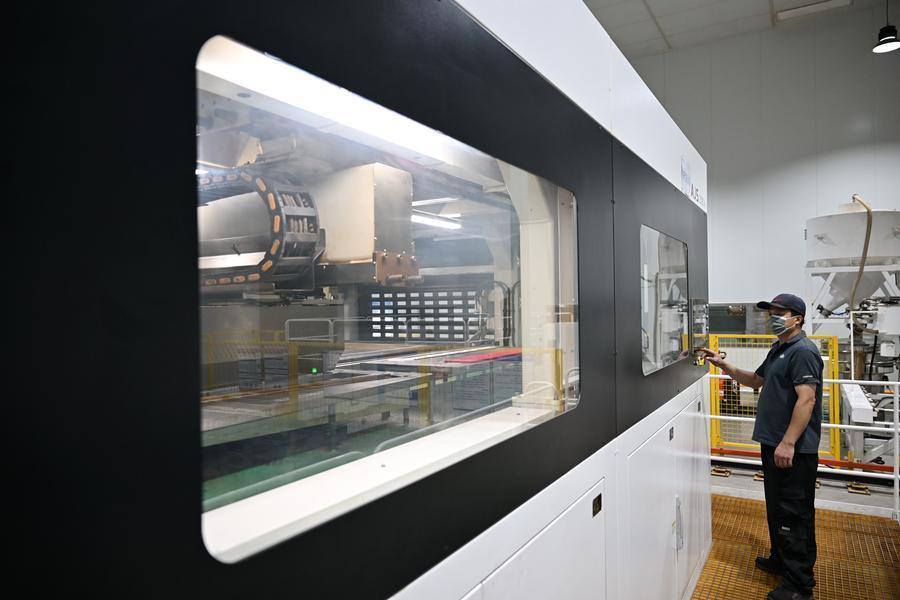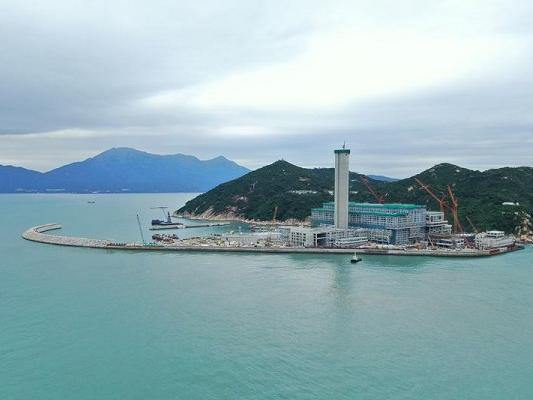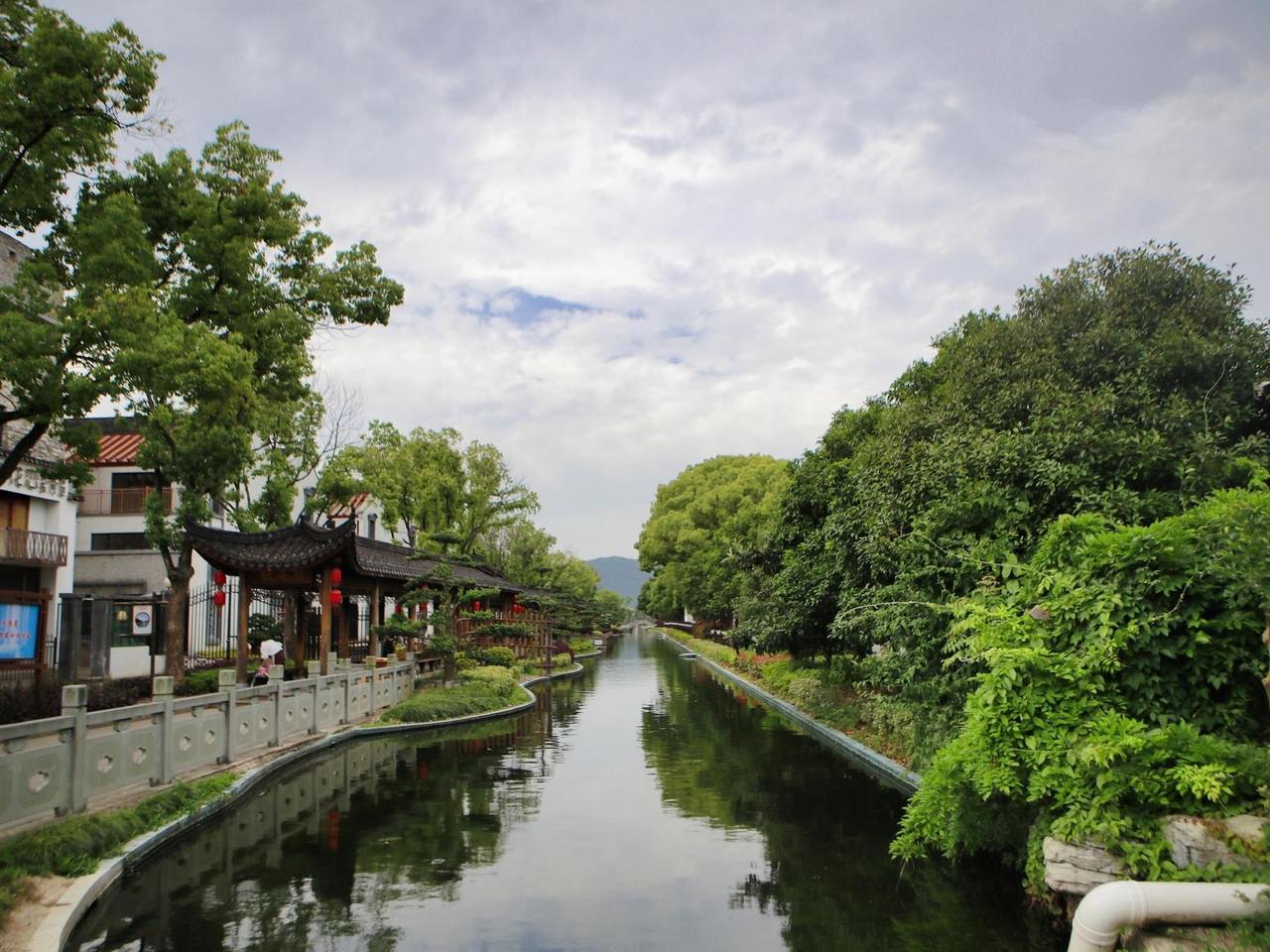Among the many commitments made at the 2018 Beijing summit of the Forum on China-Africa Cooperation, enhance experience-sharing on governance, poverty reduction and development, particularly on rural socio-economic development, gender equality, and women and youth empowerment, was one of the commitments made on the Chinese side to promote China-Africa development and support the efforts of African countries to achieve autonomous and sustainable development.
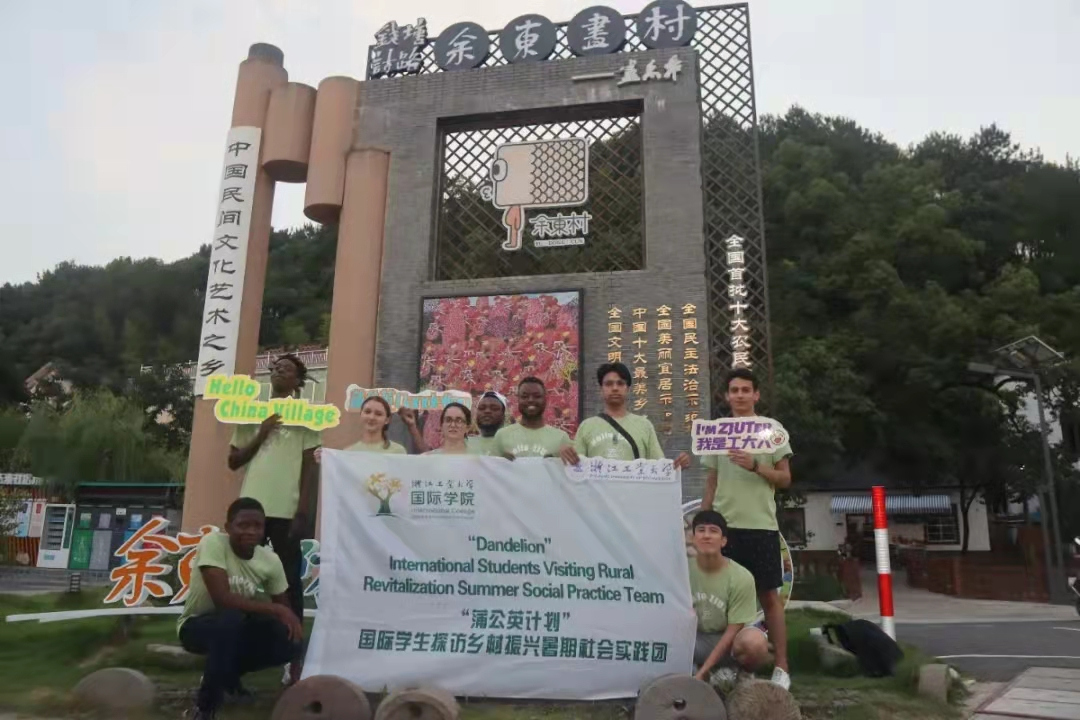
A group photo of the "Dandelion Project" (Photo/Zhejiang University of Technology)
Within this framework, the "Dandelion Project" team (pugongying jihua) of the International College of the Zhejiang University of Technology also took part in a large program of summer social practice activities (shuangbai shuangjin) organized in hundreds of universities throughout China during the last summer vacation on the occasion of the 100th Anniversary of the Communist Party of China (CPC). We were part of the team, that included five young African students from Dr Congo, Zimbabwe, and Kenya.
We were head of a group of 10 foreign students in total, accompanied by two instructors, to conduct field investigations in rural areas. We left Hangzhou, the capital of Zhejiang Province, for Quzhou City, located in the southwest of Zhejiang. Once there, we went to the local villages for a 5-day visit. We have been impressed by the actual level of development in Chinese rural areas, in a region considered to be among the poorest in the province.
Personally, this prompted me to reflect on the socio-economic situation in the rural area of my home country, Congo. During the visit, I saw myself with the solutions to the problems facing the populations living in villages in my country at the touch of my fingers, beneath my eyes, then asking myself the question: why not do like China? "Africa must learn from China", said Dr Carlos Lopez when he was executive secretary of the Economic Commission for Africa, launching an appeal to Africa, in an interview with the Pan-African News Agency (PANA). In his opinion, things appear as if China was an appropriate inspiring model.
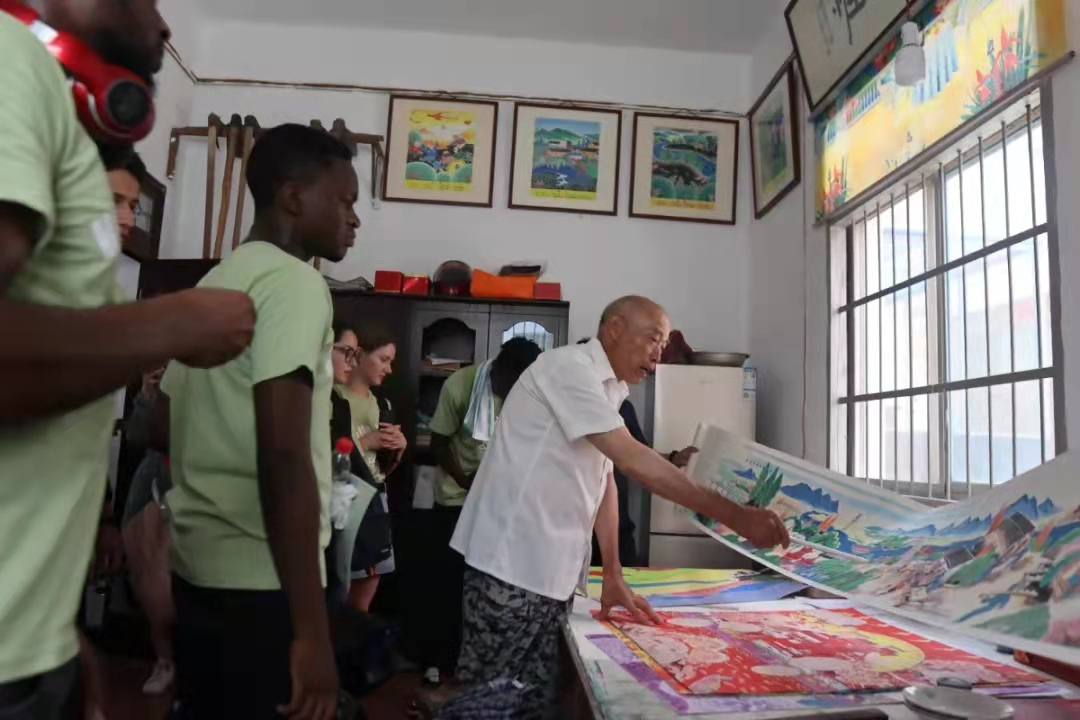
An on-site visit of international students to the countryside of Zhejiang (Photo/Zhejiang University of Technology)
It should be an effective inspiration for us who were fortunate to live in this land of Mao for any reason. As far as we are concerned, having gone to the roots of Chinese rural development; having discussed with the village's leaders of the socio-economic situation of the villages they manage, the future prospects for improving the living conditions of the peasants; and having heard the villagers themselves tell the story of the path that brought them gloriously so far, there is no longer any doubt that this is a model that Africa and Congo, in particular, has to follow if it’s willing to see its rural economy embark on the path of rapid development.
It is important for us, young Africans, who have been fortunate to live in this major Asian country, not to remain distracted, but to learn and keep in mind the experience of Chinese development. Congo can also follow the same path towards rapid development of rural economy, poverty reduction, and industrialization to save peasants who are still left wallow in misery. As China is a major partner of Congo, it’s in our benefit to put China responsibly and rationally in its role of economic partner and at the same time a model to our country’s development. But, more importantly, we need first to better understand today's China and the outline of its success. The first explanation could be found in the confidence of the Chinese citizens in themselves and in their country, in their patriotism, their attachment to the history and culture of their country; values which, however, are becoming increasingly rare among our Congolese compatriots, especially among young people.

The author stands in front of a folklore cultural yard in the countryside of Zhejiang (Photo/Zhejiang University of Technology)
On the contrary, in China, these values have grown even stronger, because the Campaign is no longer perceived negatively by urbanites in search of elsewhere and relaxation. The countryside is now a choice destination, even claimed, by a growing number of tourists through the policy of development and modernization of tourism. The Chinese countryside has entered a new stage of modernization, and that is what we had experienced. Tourism is a reality in the three villages visited, all the necessary infrastructures are fitted out to host national and international tourists.
Domestic tourism participates to build a national identity. The rural space we went to discover is loaded with values in which the citizen recognizes himself as Chinese. Fresh and healthy food, labor, the farmers’ land, and agricultural and traditional activities are all values of rural identity. Sometimes assimilated to roots tourism, family attachment to the region of origin, often rural. The challenge is to take into account how places reactivate these temporalities today, constantly producing a new relationship to the past, present, and future.
China knows where it came from and it knows where it is going. With a strategic vision and a clearly defined roadmap, like a vigilant captain, a quiet force, holding the helm of the huge ship sailing on rough seas, the Communist Party of China, which is also celebrating its hundredth-anniversary existence leads the country to even more resplendent horizons.

The author and his classmate is taking part in the folklore activities in Zhejiang (Photo/Zhejiang University of Technology)
In this regard, my country's leaders can draw inspiration from it to set up a strategic vision and develop a well-defined roadmap which will in all cases be similar to that of China, but adapted to Congolese realities, because of the difficulties that China has faced yesterday are those our country is facing today; I have often heard it from my Chinese friends, with pride: the situation you are facing today, we had experienced it about thirty years ago, we have also wallowed in poverty, they add. But today we have come out of it thanks to agriculture and other things.
Today, the vast majority of the population of my country lives below the poverty line, those for the most live in the countryside, abandoned to their fates. It is therefore urgent to modernize agriculture, improve the socio-economic situation of peasants and develop basic infrastructure in rural areas. Disconnected from the urban world, because of the lack of road infrastructures, the Congolese rural environment has a low tourist attraction, and has enormous difficulties in transporting agricultural products in a lack of industrialization and modernization.
In my humble opinion, economic development in rural areas should start with road construction, which will connect villages to towns, this is a considerable opening to economic development because it will facilitate the transport of people and goods, especially agricultural products. It’s worth mentioning that during our visit, we had not encountered any difficulty in reaching different villages, and we should point out that a fast train line is already under construction, which will connect even the most remote villages to the country's major rail network. On this point, we still have a long way to go, because some villages in our region are still inaccessible even by road, we still have a long way to go, as some of our villages are still inaccessible even by road, thus paralyzing the agriculture and tourism sectors.
The agriculture sector is still very neglected in my country compared to the mining sector, yet agriculture is to be taken with great importance in the rural and national economy for the resolution of the food crisis. In all the villages we visited, the observation was the same: villages economies are based on agriculture, and in particular on tea, which is a Chinese specialty. The peasants are aware that it is agriculture, and agriculture first, that will lift them out of poverty; and the state, through the local leaders, accompanies them in many aspects like good fathers.
Apart from agriculture, the natural talents of peasants in arts and crafts are also valued by adding visibility through promotion, modernization, and digitization of their artworks. This contributes to increasing the peasant's remuneration. This is done with the aim of "common prosperity" (gongtong fuyu). In Congo, there is no lack of agricultural land or artistic talent among farmers; a grain of support from the state, with a good policy, could help reduce poverty.
Improving financial services in rural areas also occupies a prominent place in rural modernization. The development of rural financial services delivery mechanism is of great importance in promoting rural economic development, establishing a durable mechanism to support agriculture and art, ensuring long-term stability in the countryside, narrowing the income gap between rich and poor, between urban and rural areas, and creating a harmonious society of common prosperity.
After many years of reform and development, China has established a rural financial service delivery system based on cooperative financial resources, division of labor, and coordination of actions between commercial financial services and policy financing. Today, financial services have covered most of the rural areas in China.
To combat inequalities of all kinds and to build a "harmonious socialist society", a policy aimed at promoting rural development by increasing rural incomes as well as modernizing infrastructure and agriculture is being implemented in the villages and is bearing fruit. Its mission is also to strengthen educational structures, continue the establishment of the new rural cooperative medical system, and gradually extend a minimum allowance system for unemployed rural labor. Finally, another strong point of this policy lies in the promotion of urbanization, through the development of small towns or the abandonment of the most remote and underdeveloped villages in favor of new villages generally built in the chief towns of districts, along with new roads infrastructures. The objective is also to orient the workforce towards the industrial and service sectors to gradually reduce the proportion of the rural population.
The implementation of the policy is the responsibility of the local leaders, usually, district leaders, who are responsible for administering the villages and who set up dedicated offices for this purpose, offices are often attached to the Rural Works Department of the local Communist Party Committee. It is based on a system of resource transfer, both vertical and horizontal, that is, from central government to provincial and then local governments, but also from rich to poor. Therefore, local leaders who could not, for lack of sufficient resources, invest in rural development can, upon presentation of their projects, obtain funding from the State and their province.
This is what I think is the content of the inspirational model to follow for my country to improve the living conditions of our people living in rural areas. We should not be ashamed of imitating what is good, and possibly adapt it to our own realities as long as good results can come out. In this regard, the grassroots development program for 145 territories recently launched by Prime Minister Sama Lukonde is a good sign and can be further enriched by adding more pragmatism so that it can bring good results. The latter is part of the rural development framework, that of the Deep Congo, which is now taken as the basis for development.
Our contribution to the development of our country can take many forms, and I would never have thought a visit would lead me to such a reflection after a beautiful discovery of the Chinese rural environment. "The world is a book and those who do not travel read only a page,” said Saint Augustin.
As young Africans, we rejoice with China's efforts to increase the exchange of experiences on governance, especially that of decentralized territorial entities. Going on such a visit has been a great contribution to our education because it is up to us, this generation, to put Africa back on its feet. We are also already looking forward to Dakar where the next conference of the Forum on Sino-African Cooperation will be held from 29 to 30 December; hoping that more policies will be put in place in China-Africa cooperation to support and promote socio-economic development in African rural areas.
(The author is a student of Zhejiang University of Technology. Jiang Kening also contributes to this op-ed piece)
Disclaimer: opinions expressed during this piece are solely those of the author himself and do not necessarily represent those of "In Zhejiang".
Editor: Ye Ke
